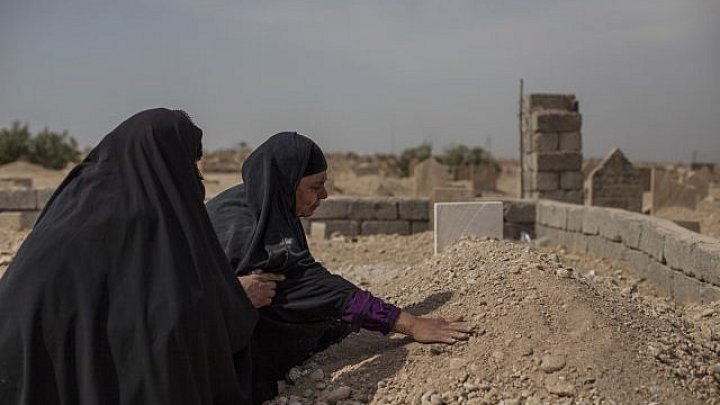Civilian death estimates not even close say NGO
 foto: PUBLIKA.MD
foto: PUBLIKA.MD
July 2017 and thick smoke rises over Raqqa.
Between June and October that year the city was subject to intense fighting as US-backed forces battled the Islamic State group for control.
Fighters on the ground were supported by coalition airstrikes. Those were intended to target the militants - but innocent civilians were caught in the crossfire.
The coalition had initially put the civilian death toll at 32 during the campaign. But last month they upped that figure by 77 after Amnesty published an investigation based on testimony collected from Raqqa residents.
"We welcome the admission of responsibility for this particular civilian casualties, but that is really only the tip of the iceberg," says Donatella Rovera, Amnesty's Senior Crisis Response Advisor who travelled to Raqqa to carry out the research.
"Everyone I've spoken to in Raqqa, from survivors, from witnesses, from families of people who were killed, all that information that I've gathered points to the numbers of civilians (deaths) of the coalition bombardment being in the high hundreds."
Amnesty is now calling for the coalition to further investigate civilian deaths in the city.
"It is high time that the coalition stops being in denial and does the right thing: a proper independent investigation," says Rovera.
Twenty-four children and 25 women are among the 77 deaths that the coalition had not previously counted, according to Amnesty's report.
It also accuses the coalition of using "faulty intelligence" in its airstrikes.
"Every family I met in Raqqa has one question which was 'why did the coalition bomb us?'," says Rovera.
She says civilians believed the coalition should have been able to tell the difference between legitimate militant targets and innocnent people.
"So they do not understand why there was such reckless bombardments."
There was no immediate comment from the coalition.
The battle for Raqqa - once a city of 200,000 people - played out over four months in 2017, with the coalition playing a supporting role as the Kurdish-led Syrian forces fought street by street. The coalition unleashed wave after wave of airstrikes and shell fire until the last of the militants left Raqqa in October 2017.
The city was left in ruins, with bodies scattered in the streets. Civil workers pulled nearly 500 corpses from the rubble in the immediate aftermath and were still finding more months after the fighting.
IS has been mostly defeated in Iraq and Syria, though it still controls small pockets of territory in both countries.